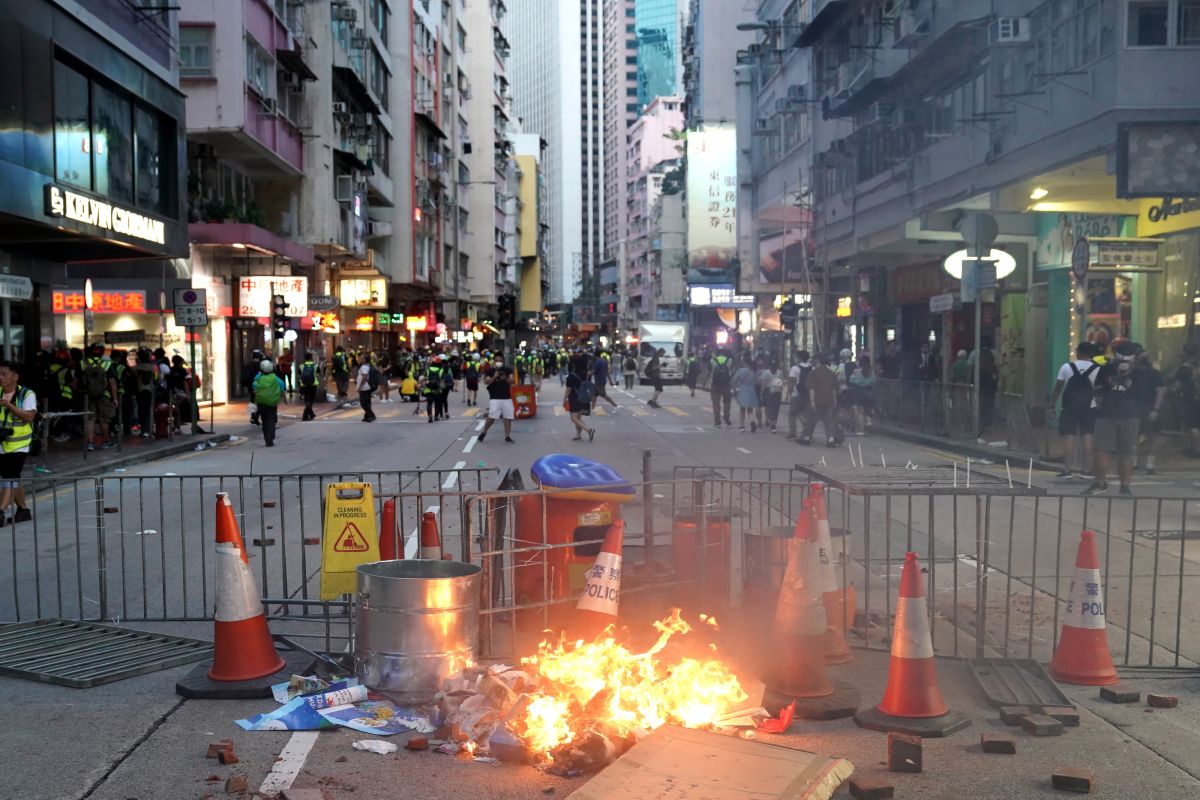Putin plays with f ire in his new doctrine
Of late Vladimir Putin has shifted Russia’s nuclear doctrine to a more directly and openly retaliatory posture in response to any attack by Ukraine or any NATO country using longer-range US missiles.
Results are expected in the early morning hours on Monday.

(Photo: IANS)
Amid ongoing violent protests in Hong Kong, the city voted in district council elections on Sunday in a ballot pro-democracy movement hoped would send a message to the Beijing-backed government.
The district council elections held in Hong Kong every four years are normally a sleepy affair, with low turnout, mostly because councillors have very limited powers and budget, as well as a reputation for graft.
The district council polls normally stir little excitement, dominated by candidates allied to the China-backed government with a remit over everyday tasks such as rubbish collections and planning decisions.
Advertisement
The poll to choose 452 councillors across 18 districts is the closest voters in Hong Kong get to direct representation — but turnout is usually unremarkable.
Nearly 400,000 new voters have registered, however, which is widely interpreted as a positive sign for the pro-democracy camp.
The district polls remain the city’s freest. In contrast, members of the city’s legislature are elected by a mix of the popular vote and industry groups stacked with Beijing loyalists.
On Saturday, the city’s officials warned the vote could be postponed after some candidates came under attack and the city was paralyzed as protesters blocked roads and riot cops laid siege to a university.
Police dispatched at least two officers clad in riot gear to each polling booth, all of which are set to close at 10:30 pm. Results are expected in the early morning hours on Monday.
Hong Kong’s chief executive, the city’s top leader, can only be nominated and elected by a committee that consists of 1,200 members, mostly pro-Beijing elites.
On Friday, the city’s police asked the demonstrators to leave the city’s Polytechnic University (PolyU) campus as soon as possible, citing bad and dangerous conditions inside.
Earlier this week, around 800 students have been reported to be trapped in the Polytechnic University in the city, where the police were firing tear gas at any protesters trying to escape the campus.
The protests, which have been drawing massive crowds since June following a contentious proposed extradition law that has been pulled by the government, have mutated into a movement that seeks to improve the democratic mechanisms that govern Hong Kong and safeguard – or expand – the region’s partial autonomy from Beijing.
The controversial China extradition bill was withdrawn in early September but the movement has morphed into a wider campaign for greater democracy and against alleged police brutality.
Advertisement